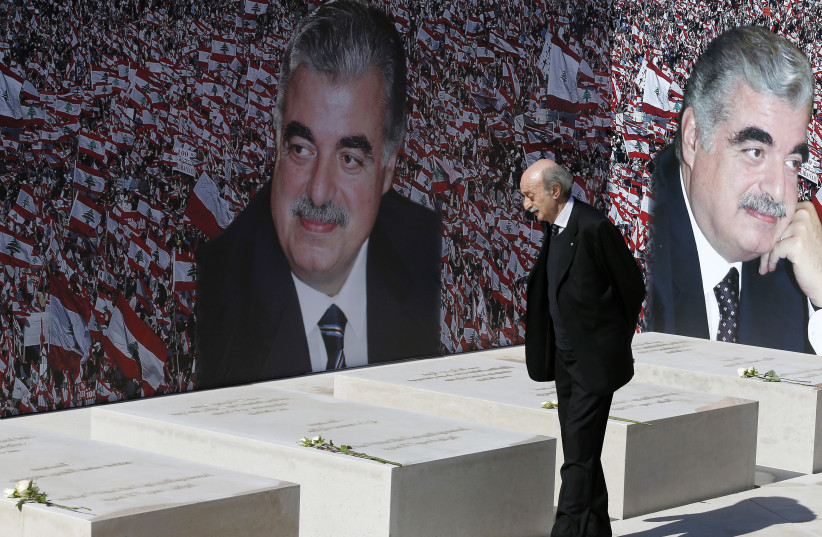Saudi Arabia's Foreign Ministry welcomed Friday the recent decision by the UN-backed Special Tribunal for Lebanon in The Hague to sentence two Hezbollah members to life imprisonment for their role in the 2005 assassination of former Lebanese prime minister Rafik al-Hariri.
The Foreign Ministry called on the international community to "assume its responsibilities towards Lebanon," stressing that Lebanon is "suffering from the absurd terrorist practices of the Iran-backed militia."
The ministry also called for international resolutions on Lebanon to be implemented and for the perpetrators of the assassination to be tracked down and arrested, saying they "deliberately contributed to the loss of innocent lives, causing unprecedented chaos in this brotherly country."
The two convicted Hezbollah members are on the run and were tried and convicted in absentia.
Hariri served as prime minister of Lebanon five times following the 1975-90 civil war. He and 21 others died in a massive truck bomb on Feb. 14, 2005. His son, Saad Hariri, has served as Lebanese prime minister twice.

In 2020, a lower trial chamber convicted a former member of the Shi'ite movement Hezbollah, Salim Jamil Ayyash, for the bombing that killed veteran Sunni Muslim politician Hariri and 21 others. Ayyash also received a life sentence in the trial which saw a prosecution case based almost entirely on mobile phone records.
Saudi-Hezbollah tensions
In November, a diplomatic crisis between Lebanon and the Gulf states broke out after Saudi Arabia expressed outrage against comments made by then Lebanese information minister George Kordahi supporting the Iran-backed Houthi rebels in Yemen and criticizing the military intervention led by Saudi Arabia, calling the war in the country "futile."
Saudi Arabia and the UAE, along with other Gulf states, withdrew their diplomatic envoys and expelled Lebanese envoys in response to the comments. Saudi Arabia also designated the financial charity body Al-Qard Al-Hasan Association, which is linked to Hezbollah, as a terrorist entity, saying it "works on managing funds for the terrorist organization (Hezbollah) and its financing."
The diplomatic envoys have since returned to Lebanon.
Saudi Arabia has also claimed that Hezbollah has sent instructors to train the Iran-backed Houthis in Yemen, publishing videos showing drone parts with Hezbollah symbols and a person identified as "a leader from the terrorist Lebanese Hezbollah" instructing Abu Ali Al-Hakim (the Houthi head of intelligence).
Turki Al-Maliki, the spokesman for the Saudi coalition fighting in Yemen, called Hezbollah a "cancer," saying it started by hurting the Lebanese and now has targeted civilians in Saudi Arabia and Yemen and "spreads destruction in the region and around the world."
